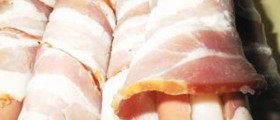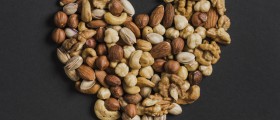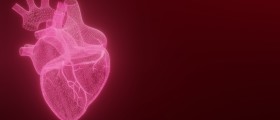
Increased level of fat in the blood occurs as a result of excessive in take of saturated fats (animal origin fats). It may be genetically predisposed, when liver increasingly produces cholesterol. Cholesterol increases due to unbalanced diet, metabolism changes, obesity, intoxication, aging, family legacy, chronic hepatitis, excessive use of alcohol, smoking, using contraceptives, using certain medications such as those for lowering blood pressure.
Fat in the blood is transported in special packages, which are different in content of fatty acids, cholesterol and proteins (carriers of cholesterol). LDL or so called bad cholesterol contains much more cholesterol than proteins, while HDL or good cholesterol contains a larger amount of proteins (carriers). Each percentage of increase in HDL-good cholesterol, and decrease LDL-bad cholesterol, protects the heart and blood vessels, reducing mortality and disability due to diseases of the heart and blood vessels in the amount of the 2%.
Normal values of total cholesterol should be ranged between 120 and 200 mg / dl, while HDL should remain within the limits of 40-80 mg / dl. The dramatic increase in bad cholesterol causes inflammatory process in the inner layer of arteries. On inflamed spot lymphocytes is going to run beginning to bury artery with cholesterol, calcium and other harmful ingredients. Blood vessels losing their elasticity, forming plates that disrupt the normal blood flow.
In the process, called atherosclerosis, some body parts are left without enough blood and oxygen which result in destruction of vital organs such as: • heart - the occurrence of angina pectoris or myocardial infarction; • kidneys - which loses its function• brain – stroke can happen due to bleeding or thrombosis.
Fats succumb to further oxidative degradation leading to damaging the walls of blood vessels. In the case of ripping of the deposits part from the blood vessels wall, occurs a thrombus. Thrombus can lead to blockage of small blood vessels and stopping the blood flow - oxygen and nutrients transport stops. Blockage of blood vessels in the heart leads to a heart attack - part of the heart muscle loses oxygen and dies. If the damaging the heart is too much, the consequences can be fatal.
Blockage of blood vessels in the brain causes a stroke - part of the brain loses oxygen and dies. As a consequence appears loss of functions that were under jurisdiction of the damaged part of the brain.
Prevention of high cholesterol include: proper nutrition, physical activity and refraining from harmful habits such as smoking and stress.
When it comes to nutrition, it is necessary to reduce intake of saturated fats increase intake of polyunsaturated and monounsaturated fats. It means increased consuming beans, citrus fruit, apples, carrots, garlic, all fruits and vegetables, whole grains, oily fish, beef, chicken, turkey, rabbit, saltwater fish, yogurt, young cheese, skim milk, vegetable oil, bread, pasta, rice (preferably integral), cold pressed olive oil, grains and oil seeds (corn, sesame, sunflower, peanut). Foods such as butter, bacon, pork, pork fat, cream, pancetta, duck meat, offal, fat cheese, whole fat milk and yogurt, dry cakes and biscuits, alcoholic drinks, sugar, salt, egg yolks, fried foods and coffee should be avoided. Strictly prohibited foods are cakes and creams, candies, fatty beef and mutton, various additives and harmful chemicals in food coloring.
Regular physical activity (the most effective is fast walking), reduces excess weight, strengthens condition and sends more oxygen to the heart and lungs.

















Your thoughts on this
Loading...